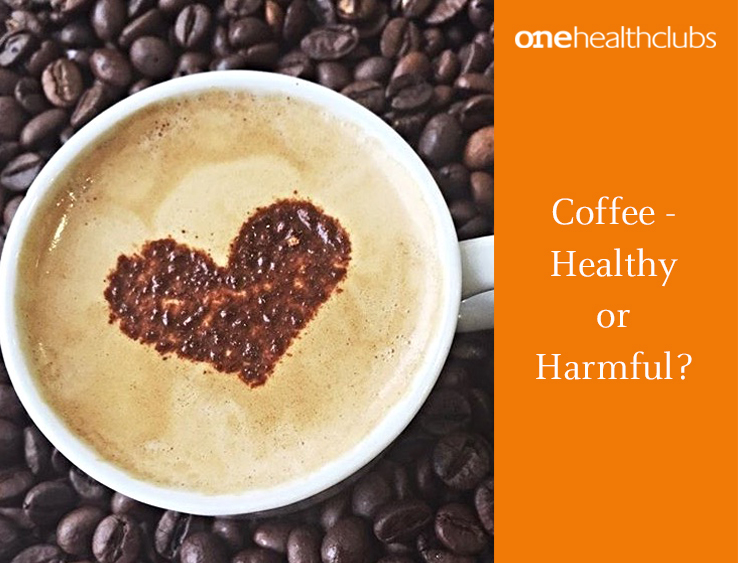
Coffee – Healthy or Harmful?
For most of us, a cup of coffee is simply a harmless and enjoyable way to kick-start the day or give us an excuse for some time out. No more, no less.
Coffee is a tough one for the experts to peg. There seems to be as many who espouse its virtues as there are those who condemn its effects. If you are a person interested in healthy nutrition, which way are you to turn? There appears to be no right answer. The best we can suggest is to weigh the pros and cons and make the best decision for you.
PROS
1. Antioxidants
Coffee is a rich source of the type of antioxidant that fights free radicals. This is a considerable benefit. Free radicals are nasty intruders that cause inflammatory activity in the body. They are tied to a myriad of chronic health issues such as heart disease and Type 2 Diabetes. The good news for coffee drinkers is the antioxidant component of the drink is independent of coffee’s caffeine. As such, decaf coffee can yield the same antioxidant benefit.
2. The Good ‘Dope’
Coffee drinkers have been shown to experience elevated dopamine and serotonin levels. These chemical messengers of the mind can mitigate the effects of depression. Studies have shown a 20% reduction in the occurrences of depression in women who drank 4 cups of coffee per day. Coffee may also help deter other neurological conditions from developing; particularly, Parkinson’s disease. Studies have shown a 30% reduced risk of developing Parkinson’s disease among coffee drinkers. It is believed that it is because Parkinson’s is caused by the loss of brain cells that make dopamine, also chemical instrumental in movement and fine motor control. The stimulation attributable to coffee is a result of the caffeine. Decaf won’t deliver the same effects.
3. Performance
Caffeine is just about the only legal and accepted performance enhancing drug available. Delivered in quantities present in coffee (about 90 to 100 mg per serving) it can: i) increase alertness, awareness and brain function, ii) stimulate fat stores in the body to increase energy levels, iii) strengthen muscle contraction; and, iv) release endorphins in the brain that raise the raise the body’s pain threshold. Clearly, these benefits are also tied to caffeine… sorry decaf people.
CONS
1. Caffeine Overload
As the saying goes: Too much of a good thing… The stimulation caused by caffeine leads to the release of stress hormones. The effect on the body can be a sensation of heightened stress, anxiety… and even panic. This is especially true for individuals with sensitivity to caffeine (as this author can attest). The real problem is that we all react differently. It’s impossible to tell to whom the stimulation will deliver a negative effect.
2. Caffeine Dependence
Caffeine, like other – more nefarious – stimulants (such as nicotine or amphetamine), can be dependence inducing. As little as 1 dose a day delivered by a cup of coffee can lead to physical dependence. The real problem manifests when the dependent individual is denied the stimulant. The withdrawal symptoms can be rather unpleasant. They include: headaches, lethargy and irritability (to name just a few).
When it comes to coffee, the decision to indulge or not to indulge is left to the individual. There is no clear rule of thumb. However, it is important to remember that different people exhibit different tolerance levels to caffeine, it is after all, a drug.